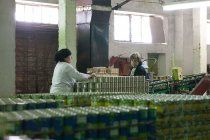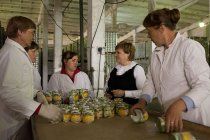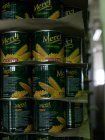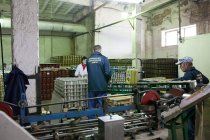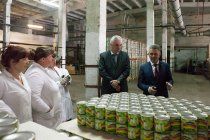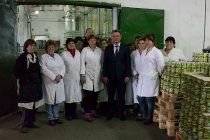 Русский
Русский English
English-







To help the enterprise
The next item on the trip of Parliamentarians to the north of the republic became Kamenka cannery, which is a state enterprise. Its work team consists of 213 people, who produce 34 kinds of canned fruits and vegetables and other products (jam, jams, juices, etc.). Production capacity of the plant is 4 million cans of sweet corn and up to 6 million green peas. The main resource base is in the local collective farm "The Puti Lenina". Addresses of supplies - are Russia, Belarus, Moldova and the domestic market. Unfortunately, according to company director Ruslan Spataro, foreign markets products of Kamenka canning has uncompetitive price. Manufacturers forced it to reduce, thereby washing out the working capital.
Because of the lack of raw materials, the company does not conduct processing of products, production is seasonal. Due to the low level of implementation from December wages at the factory to employees are not paid. The dialogue with the management and staff of SUE "Kamenka cannery", except for the Speaker Vadim Krasnoselsky and vice-speaker of Galina Antyufeeva, was attended by Chairman of the profile parliamentary committee Efimy Koval, as well as deputies of the inhabitants of Kamenka Porphyry Shkilnyuk and Valery Babchinetsky. During the visit to production halls the Parliament Speaker Vadim Krasnoselsky talked with representatives of the workforce. Workers said they are willing to work, that their products are environmentally friendly and high-quality, but wages are not paid.
The final chord of a trip to Kamenka parliamentarians will meet with residents of their city and region. During anticipating her conversation with reporters the deputy of the Supreme Council for the electoral district №15 “Kamenka” Valery Babchinetsky was hypothetical ranking of the problems residents of Kamenka will appeal to the Supreme Council Chairman Vadim Krasnoselsky during the forthcoming dialogue. This is, above all, unemployment, simplifying the procedure of registration of rights to home ownership, located in rural areas with drinking water supply problems and street lighting of villages.



